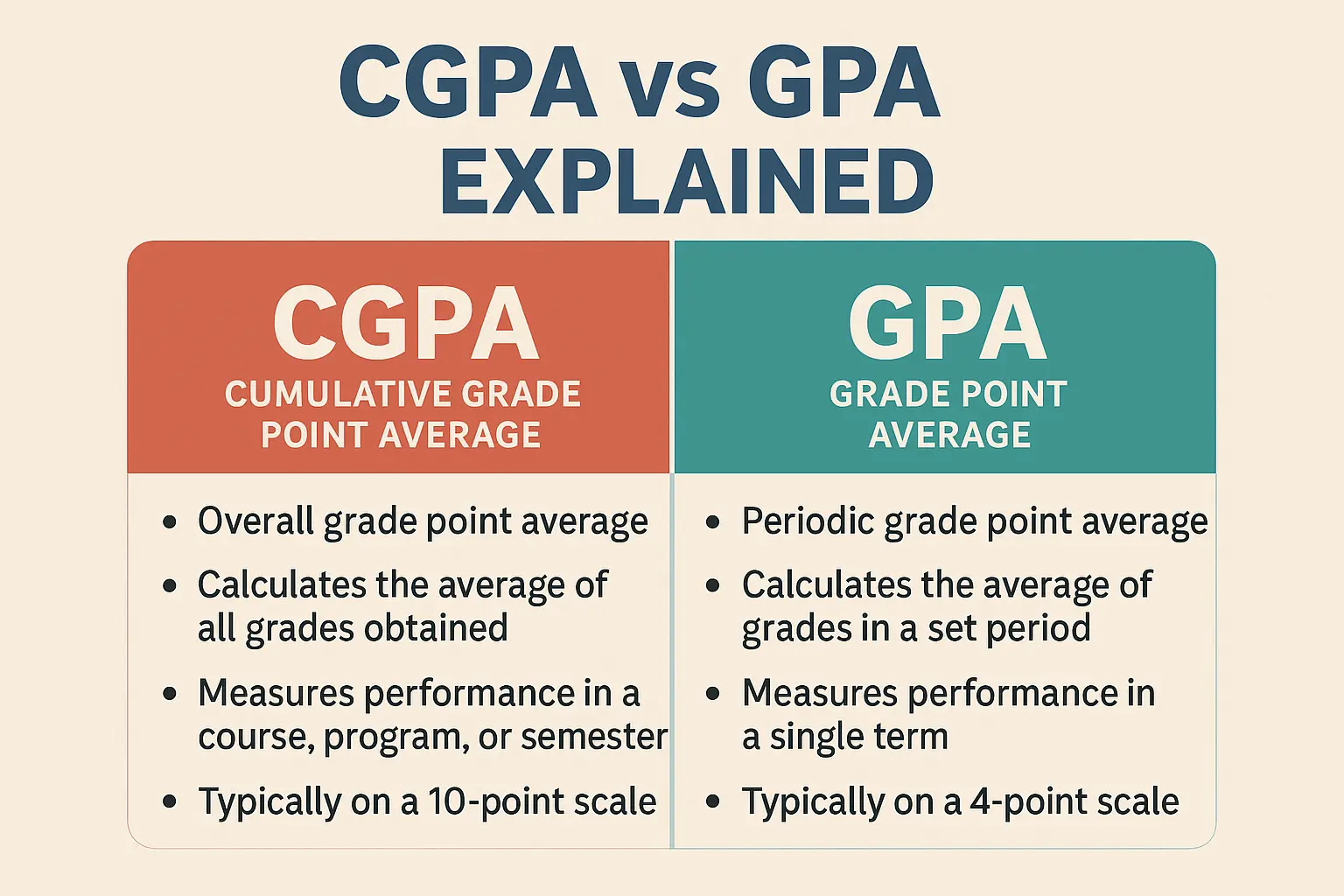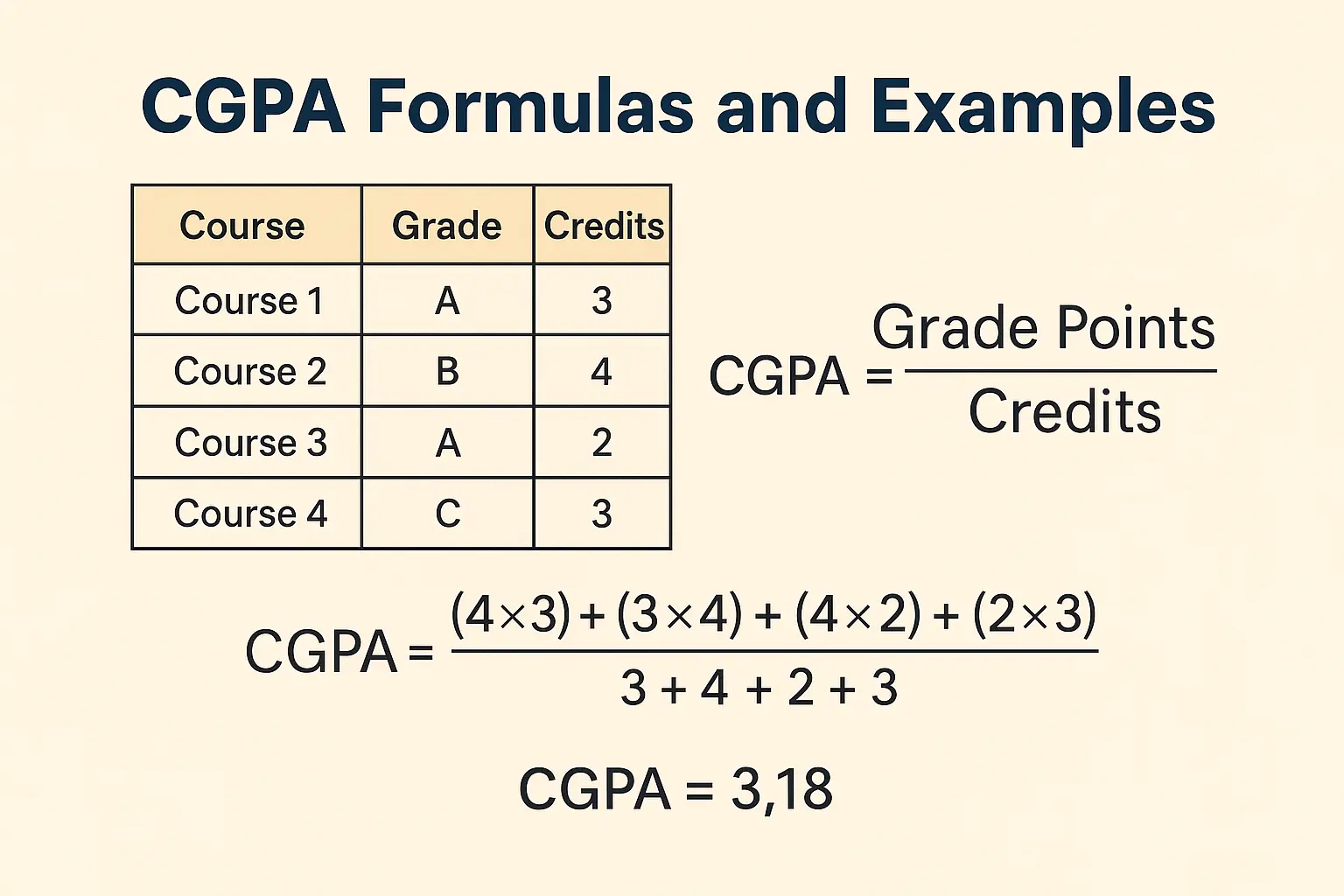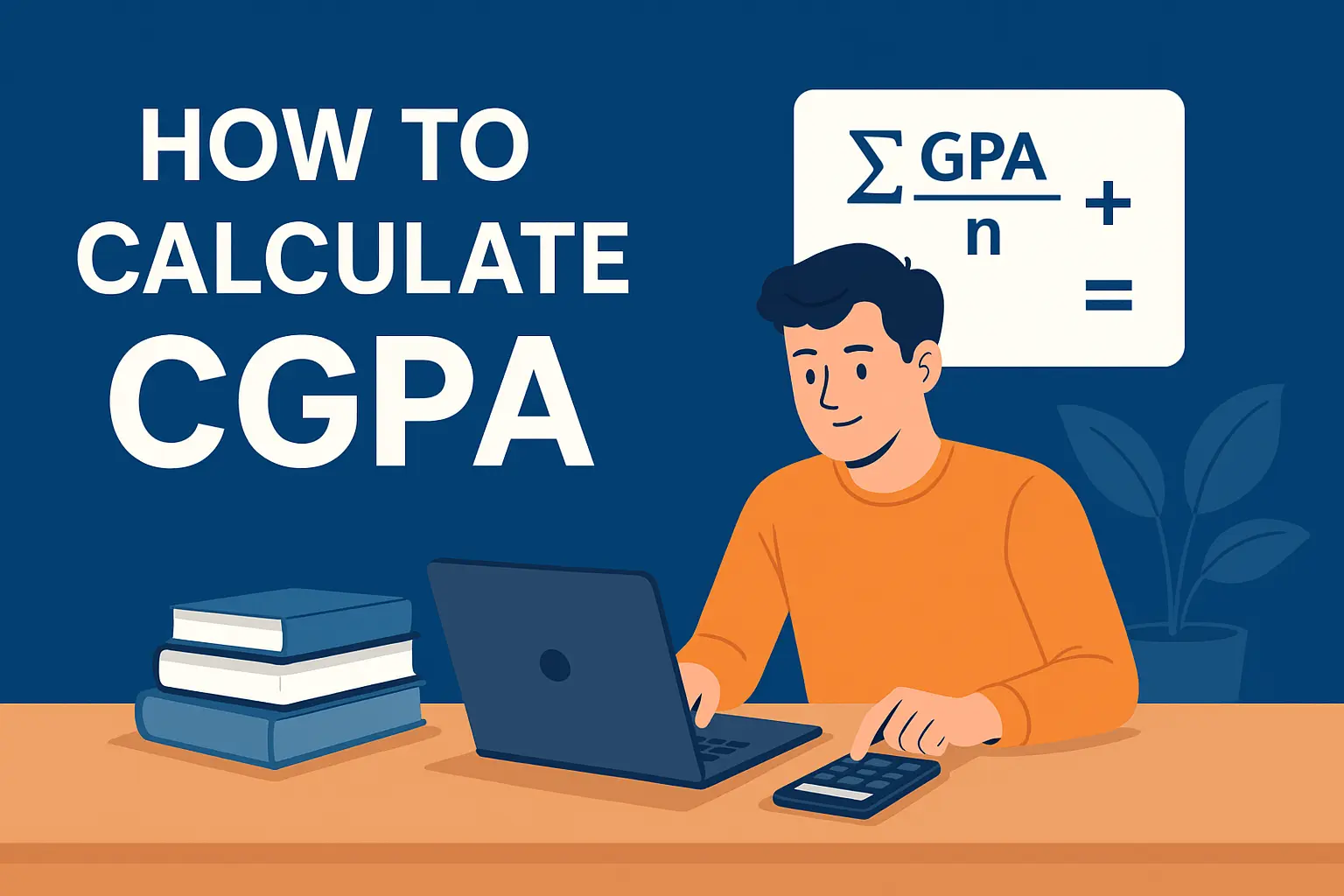Are you confused about how to calculate CGPA? Whether you’re in high school, college, or university, understanding your academic performance is crucial for your future. CGPA, or Cumulative Grade Point Average, helps you monitor your progress and set goals for improvement. In this guide, we’ll break down how to calculate CGPA step-by-step, discuss various grading systems, and clear up common misconceptions. If you’re a student striving for academic excellence, this post is your go-to resource.
What is CGPA and Why is it Important?
Cumulative Grade Point Average (CGPA) is a metric used to assess a student’s academic performance across multiple semesters. Unlike GPA, which focuses on a single term, CGPA represents an overall average of GPA scores. Many institutions use CGPA to determine:
- Academic honors (e.g., Dean’s List)
- Scholarship eligibility
- Admission into advanced degree programs
- Employability and internships
GPA vs CGPA: Key Differences
| Metric | GPA | CGPA |
|---|---|---|
| Meaning | Grade Point Average | Cumulative Grade Point Average |
| Timeframe | Single semester | Entire academic program |
| Focus | Term-specific performance | Overall academic performance |
| Importance | Helps identify short-term trends | Reflects academic consistency |
For example, a student may have a 3.8 GPA in one semester but a CGPA of 3.5 over four semesters. Employers and graduate schools often pay more attention to CGPA for a broader view of your capabilities.

Step-by-Step Guide: How to Calculate CGPA
Let’s break down the process of calculating CGPA in a simple and structured manner.
✍️ Step 1: Identify the GPA for Each Semester
Start by listing your GPA for each semester or academic year. If your institution provides weighted GPA (based on credit hours), note that too.
Example:
- Semester 1: 3.6
- Semester 2: 3.8
- Semester 3: 3.7
✍️ Step 2: Add All Semester GPAs Together
Total GPA = 3.6 + 3.8 + 3.7 = 11.1
✍️ Step 3: Divide the Total by the Number of Semesters
CGPA = Total GPA / Number of Semesters CGPA = 11.1 / 3 = 3.7
This is your cumulative grade point average.
Weighted CGPA Calculation (with Credit Hours)
Many institutions use credit hours to determine the weight of each course. In this case, you calculate your CGPA as follows:
📊 Formula:
CGPA = Total Grade Points Earned / Total Credit Hours Attempted
Example Table:
| Course | Grade | Grade Point | Credit Hours | Grade Points Earned |
| Calculus | A | 4.0 | 3 | 12.0 |
| Chemistry | B+ | 3.3 | 4 | 13.2 |
| Literature | A- | 3.7 | 2 | 7.4 |
Total Grade Points = 12 + 13.2 + 7.4 = 32.6
Total Credit Hours = 3 + 4 + 2 = 9
CGPA = 32.6 / 9 = 3.62

How to Convert Percentage to CGPA
For boards like CBSE (Central Board of Secondary Education – India):
CGPA = Percentage / 9.5
Example:
If you scored 85%, your CGPA = 85 / 9.5 = 8.95
Note: This is an approximation. Always check with your academic institution.
CGPA Conversion Chart: 10-Point to 4-Point Scale
If you’re applying to a university abroad, you might need to convert your CGPA to a different scale.
| CGPA (10-Point Scale) | Equivalent GPA (4-Point Scale) |
| 9.0 – 10.0 | 4.0 |
| 8.0 – 8.9 | 3.7 – 3.9 |
| 7.0 – 7.9 | 3.0 – 3.6 |
| 6.0 – 6.9 | 2.5 – 2.9 |
Common Mistakes to Avoid
- Mixing grading systems: Stick to either 4.0 or 10.0 scales consistently.
- Ignoring credit hours: Weighting is essential for an accurate CGPA.
- Using raw scores instead of grade points: CGPA relies on converted grade points.
- Misinterpreting letter grades: Confirm the GPA value of letter grades at your institution.
Tools and Resources for CGPA Calculation
- Bytevex CGPA Calculator
- Simple CGPA Tool
- Your university’s student portal or academic dashboard
- Excel/Google Sheets with GPA templates
📍 Internal link: Explore our How to Calculate Attendance Percentage guide to understand how they impact career prospects.
Final Thoughts: Master Your Academic Journey
Understanding how to calculate CGPA is a key part of managing your academic life. Whether you’re applying for graduate school or aiming for a scholarship, an accurate CGPA can set you on the right path. Use our guide, stay organized, and keep track of your academic performance.
🙌 Found this helpful? Share it with your friends, drop a comment with your questions, or subscribe to our newsletter for more academic tips!
FAQs: Everything You Need to Know
Q: How many points is an A grade worth?
A: Usually 4.0, but this may vary by country or institution.
Q: Can a failed course bring down CGPA significantly?
A: Yes. Failed courses usually carry 0 points, lowering the average.
Q: Can I improve my CGPA?
A: Absolutely. Scoring higher in future semesters and retaking failed or low-scoring courses can boost your CGPA.
Q: Is CGPA important for jobs?
A: Yes, especially for entry-level positions and internships. Employers often set a minimum CGPA requirement.





